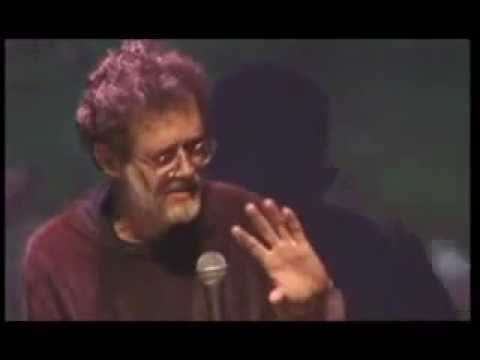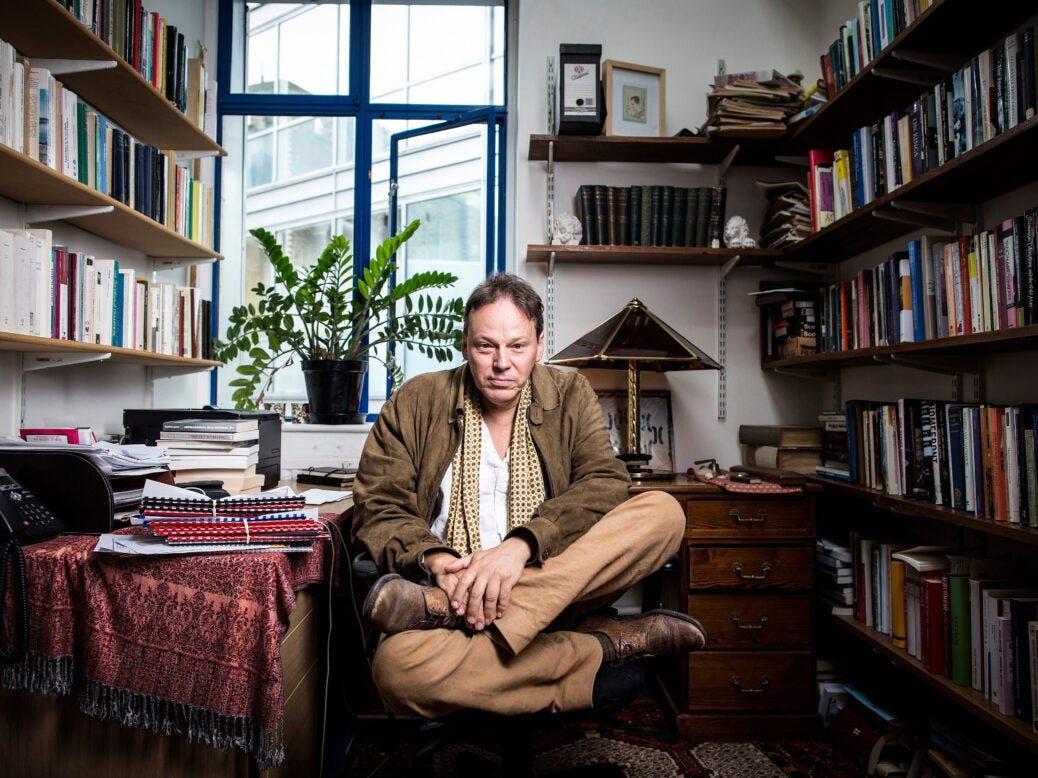THE GREAT DAVID GRAEBER DEBATE
Crow Qu'appelle Vs. Darren Allen on the Legacy of the late David Graeber
HEY FOLKS,
Lately, I’ve been on a big David Graeber kick, and have written several essays drawing upon his work.
Up until his sudden death in September 2020, David Graeber was one of the world’s foremost anarchist intellectuals. He was also one of the world’s most famous anthropologists.
I became interested in his work after his mysterious death, as I suspected that he had been murdered.
How did David Graeber die?
Hey Gang, For the better part of a year, I’ve been pretty obsessed with David Graeber, the anarchist activist best known for his central role in the Occupy Movement. I’ve read three of his books, tons of his articles, watched countless interviews, and listened to a lot of his lectures.
Recently, Winter Oak Press published an article entitled The Great David Graeber Debate, in which my stance regarding the importance of Graeber’s work is contrasted with that of Darren Allen, who takes a much more critical view of the esteemed anthropologist’s legacy.
If you aren’t familiar with the work of Darren Allen, he is another green anarchist theorist whose work is largely congruent with that of Paul Cudenec and myself.
I have previously written about Darren Allen’s work here:
PRIMIVITISM VS. PRIMALISM - WHICH IS MORE BASED?
Ted Kaczynski, the notorious ‘domestic terrorist’ and radical author (who died last month) also went into the Woods. After he was arrested and his work became widely known, he became, for a short time, the darling of anarcho-primitivists such as John Zerzan, and with good reason, as
Anyway, Darren Allen has a much more critical take on David Graeber than I do.
Months after the famous scholar died mysteriously, Allen had this to say:
David Graeber was a rationalist, democratic, technophilic socialist. He uncritically supported democracy, and was unable or unwilling to accept that it subordinates individuals, he was uncritical of leftist causes (such as feminism) and continually focused his ‘activism’ through statist party politics, he was uncritical of professionalism (firing shots at every job conceivable in his book Bullshit Jobs, yet curiously coy about attacking doctors, teachers, lawyers and so on), he was uncritical of technology — even lamenting that we’re not technologically advanced enough — and, tellingly, he was uncritical of state-imposed lockdowns (he died suddenly in September 2020 but uttered not a syllable of doubt about or during the tyranny of the prior six months). He couldn’t outline an anarchist society because he was not an anarchist.
In choosing to do a deep dive into David Graeber’s life work, I knew that I would encounter this attitude, because the truth is that for all his brilliance, I do have certain disagreements with his analysis, some of which are very significant.
Anyway, I plan to address to eventually get around to critiquing those positions of Graeber’s that I specifically disagree with, but that is not my main focus.
My main purpose, however, is to make sure that Graeber’s best ideas are not forgotten.
There are many valuable concepts in anthropology which have yet to enter anarchist theory, and I have learned about many such concepts through David Graeber’s writing.
THOSE WHO WALK AWAY FROM CAHOKIA (WHAT IS ETHNOGENESIS?)
Hey Gang! As you know, I’m a big believer that anarchist theory is in need of a big overhaul, and I’ve been doing my best to play my part. Lately, I’ve been wondering how many of my readers are actually familiar with post-left anarchist theory. I’m guessing that some of you probably think that post-left anarchism is a new thing, but it is absolutely not.
Anyway, what you are about to read is an article by Paul Cudenec in which he contrasts my position with that of Darren Allen.
Enjoy!
for the wild,
Crow Qu’appelle
The Great David Graeber Debate
by Paul Cudenec
(First published in the Acorn Anarchist Bulletin by Winter Oak Press)
In the small world of contemporary thinkers whose work is in line with the Winter Oak worldview, you wouldn’t expect to find a huge divergence of attitudes towards a specific author.
But this is very much the case regarding the late anarchist anthropologist David Graeber (1961-2020), who has in recent weeks been the subject of strikingly contrasting analysis from our friends Crow Qu’appelle and Darren Allen.
Crow has been enjoying a deep dive into Graeber’s work and declares: “I am convinced that David Graeber was among the greatest minds of his age”.
He finds his analysis “brilliant” and “vitally important”, insisting that “someone really needs to take it upon themselves to make sure that his ideas aren’t forgotten”.
Crow adds: “He really always appears to want the best for everyone, and to not see political conflict as a zero sum game. Over and over, he insists that another world is possible, and that it is largely due to our own lack of imagination that we continue to reproduce political realities that leave so much to be desired.
“There is something pure and charming at the heart of his work, and I even occasionally find myself regarding Graeber as some kind of sage or saint. Certainly, he was someone who had a profound message for humanity”.
In particular, Crow is impressed by the important connection between anarchism and anthropology made in Graeber’s work: “I think that he was aiming to overthrow a disempowering narrative which has been promoted for hundreds of years – that oppression is inevitable because human beings are nasty, brutal savages who would all kill and rape each other if it weren’t for cops keeping us in line”.
He also highlights the way that Graeber “debunked the Myth of Barter”, pointing instead to the existence of a traditional “Gift Economy”. “This is all very fascinating because it suggests that human beings have innate instincts towards sharing”.
And he describes how in “Fragments of an Anarchist Anthropology”, Graeber points out that majoritarian democracy – voting – is rarely, if ever, practised by egalitarian societies, who prefer consensus.
Darren on the contrary, insists in his own article: “David Graeber was, like Noam Chomsky, a rationalist, democratic, technophilic socialist who appropriated the radicalism of anarchism in order to distance himself from the conspicious futility of the professional leftism he embodied”.
He says that Graeber “had no real interest in genuine anarchist revolt (continually focusing his ‘activism’ through statist party politics)” and “when push came to shove and state-imposed lockdowns inaugurated a new dawn of subjugation and control, he was strangely silent”.
Darren adds: “He liked civilisation. He believed that cities, states, technology and private property were inevitable. Like other goodies of mainstream socialist-anarchism, he liked fighting ‘fascists’, ‘sexists’ and other right-wing baddies on the other side of the stage; remaining within the theatre that granted him his fame and influence”.
He goes on to accuse Graeber and David Wengrow, his fellow The Dawn of Everything author, of trying to persuade their readers that “domestication, stratification, urbanisation, agriculture, specialisation and technology are natural, right, good for us” by using “meaningless, postmodern definitions” of certain terms so that they can be identified in pre-civilised societies.
For instance, he says, the idea of ‘city’ is expanded to ‘large gathering places’ and “the idea of ‘property’ is expanded to mean possession (even, amazingly, possession in a sacred sense; apparently the idea that a lake ‘belonged’ to a Great Spirit shows that we always had private property!)”.
Crow does mention that Graeber was “an unabashed technophile”, but does not let that difference of opinion prevent him from an appreciation of his overall analysis.
For Darren, however, this is not something to be lightly disregarded.
He writes: “David Graeber doesn’t have a critical word to say about technology, he had no interest in engaging with our greatest critics of technology and he yearned for force fields, teleportation, antigrav fields, jet packs and immortality drugs.
“The idea that technology beyond a limit automatically subjugates men and women to its needs, infects their consciousness with its utilitarian priorities, degrades man’s apprehension of the ineffable, trivialises nature, numbs awareness, forces dependency, supplants free choice and tends towards the colonisation of every sphere of human activity; none of this was of interest to Graeber (as it is not to most socialists)”.
Of course, two reviewers’ opinions of the same work are largely a subjective matter and it’s not necessarily always a question of one of them being right and the other wrong.
For instance, for Darren all of Graeber’s books have a “curiously ‘weightless’ feel. Nothing in it is rooted in the real world”.
Crow, for his part, says Graeber was a “utopian”, adding: “If one delves into his work, one notices a very lovely quality of spirit permeating it”.
Here they are more or less saying the same thing, albeit in different ways.
But there is clearly an unbridgeable chasm between Crow’s view that Graeber was a “brilliant scholar and revolutionary” whose ideas were so dangerous to the system that he was possibly murdered and Darren’s take that he was peddling “a gross misrepresentation of humanity, one that has led, and can only lead, to misery”!
What do Acorn readers think? You are invited to share your views in the comments section at the end of the bulletin…











Very interesting. I wonder how his philosophy relates to my boy Kropotkin and "Mutual Aid?" Reminds me of him a bit from what I read.